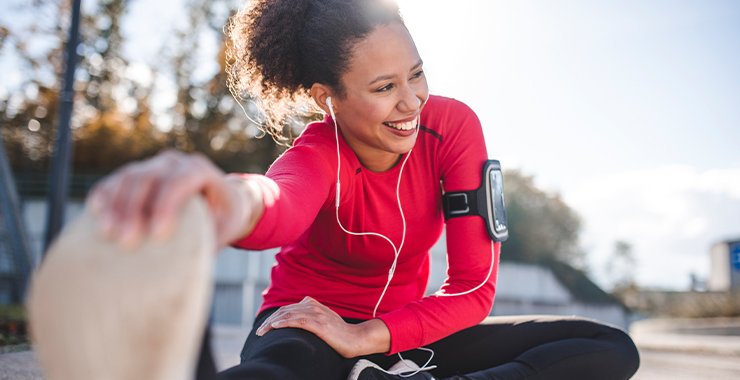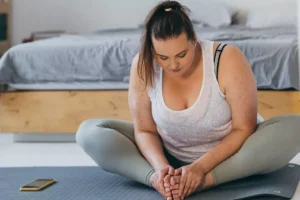Regular physical activity increases lifespan and decreases risk for many health issues; yet only half of adult Americans meet recommended physical activity guidelines.
Even if you fall short of meeting the CDC’s recommended 150 minutes of moderate-intensity exercise each week, any small effort counts towards making you healthier and helping to meet its recommendations. Walking to and from work, engaging in short bursts of physical activity, or holding “walking meetings” all help get people moving and get you moving in a healthier direction.
1. Increased Energy
Exercise programs can help people maintain a healthy and sustainable level of energy. Aim for at least 150 minutes of moderate-intensity aerobic activity per week as well as two strength training sessions targeting all major muscle groups.
Workouts can help to rejuvenate energy levels thanks to the cellular-level changes triggered by exercise and increased oxygen circulation to your muscles. Plus, workouts cause your body to produce serotonin and norepinephrine hormones, which improve mood while making you more alert.
2. Better Sleep
People who regularly get high-quality sleep tend to engage in regular physical activity, which has numerous health benefits that support better restful slumber, such as raising adenosine levels, inducing drowsiness, and decreasing body temperature; all factors that aid sleep.
Exercise helps relieve stress, reset the circadian clock, and ease sleep disorder symptoms. Furthermore, exercise increases your sleep drive – meaning the more active you are during the day, the easier it will be for you to fall asleep at night. Vigorous aerobic activity should be avoided before bedtime while early morning exercise seems best at aiding restful slumber.
3. Lowers Risk of Heart Disease
Physical activity is proven to increase heart health, lower your risk of high blood pressure and diabetes, manage weight effectively, and even lower the risk of cardiovascular disease. By participating in a regular activity you will improve both of these aspects.
Engaging in 150 minutes of moderate physical activity every week and two sessions of muscle-strengthening exercise is proven to reduce risk factors associated with cardiovascular disease and obesity. Activities like gardening and housework count towards this guideline. Don’t put off starting now – now is always the right time!
4. Boosts Immune System
Exercise can reduce the risk of many diseases, strengthen bones and muscles, aid mental well-being, and increase immunity – but what you may not realize is that exercise also boosts immune systems and makes vaccinations more effective.
Exercise causes skeletal muscles to act as endocrine organs and release myokines, hormones that stimulate tissue repair while encouraging immune cells to circulate throughout the body more freely and quickly. This allows your immune system to better scan for intruders and quickly launch attacks when necessary.
Make time for both moderate exercise, like walking, and high-intensity interval training (HIIT) but remember to include some rest days as too much intense activity can lower immunity.
5. Reduces Stress
Physical activity not only stimulates your body to produce feel-good neurotransmitters (endorphins), but it can also reduce stress levels. Walking, jogging, swimming, and dancing are great choices; bowling, tennis, yoga classes or simply stretching while watching TV may also be beneficial.
Try exercising with a friend to increase motivation and make workouts more enjoyable. Over time, most people discover they feel better as exercise becomes a regular part of their lives; this increase in sense of well-being can increase self-esteem, better sleep habits, and increase coping capacities.
6. Improves Mental Health
Exercise can provide many people with increased self-confidence, mood enhancement, and sleep quality improvements, as well as reduced risks of stress, clinical depression, and Alzheimer’s disease.
Exercise reduces levels of the stress hormone cortisol while stimulating the production of endorphins – natural painkillers and mood enhancers produced by your body – that help relieve discomfort. Furthermore, physical activity has been proven to promote memory recall as it stimulates new brain cell formation. BetterHelp offers personalized therapists who can assist you with getting moving. Start today by taking our free assessment!
7. Strengthens Bones
Exercise can reduce the risk of serious diseases, improve mood, and assist with weight control – but what may not be as widely appreciated is its role in strengthening bones and reducing bone loss.
Young adults, especially adolescents, play an especially crucial role in building and maintaining strong bones for life. Running, jogging, tennis, and jumping exercises provide ideal ways to strengthen bones in this regard.
Brisk walking, tai chi, and swimming are low-impact exercises that are also good for you. Strength training (using weights or resistance bands) also boosts bone health.
8. Improves Muscles
Regular exercise strengthens muscles, helps prevent bone loss, increases flexibility, and may help slow mental decline such as dementia.
Exercise regularly increases serotonin and other mood-boosting chemicals in your body, as well as strengthening resilience against stress, giving you more ability to cope with life’s challenges.
No membership to a gym or marathons is necessary! Walking, gardening, jogging, dancing, inline skating, and playing tennis all count as aerobic exercises that provide sufficient aerobic stimulation.
9. Strengthens Sense of Well-Being
Physical activity has the power to significantly lower the risk of many long-term (chronic) diseases while simultaneously improving mood, energy levels, sleep quality, and self-esteem. Exercising can take the form of anything from running around your kid’s soccer field or taking a bike ride for pleasure to leaving the bus earlier and walking the remainder of your commute – it all counts!
Be creative: anything that elevates your heart rate and produces sweat can count as physical exercises, such as chopping wood or gardening, attending a dance class, or bopping to music with friends! Get moving today!
10. Makes You Happier
Have you heard about “runner’s high” after an intense workout? Endorphins are only one reason exercise makes us happier; here are more reasons.
Exercise helps release hormones that alleviate feelings of depression and anxiety. Furthermore, regular physical activity strengthens you physically so everyday activities such as climbing stairs and carrying children around are easier.
Find an activity you enjoy – walking to work, jogging with friends, or joining a recreational sports team can all count as physical activities! Just aim for 30 minutes of moderate or vigorous physical activity three or four times each week.




